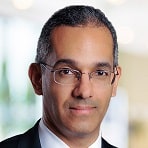Andrew Gray is managing director and group chief risk officer at the Depository Trust and Clearing Corp.
What will 2017 be known as?

Andrew Gray, DTCC
This past year highlighted that there are limitations in the ability to forecast and predict event results. It also reinforced the importance of challenging conventional wisdom and the status quo, along with conducting preparation efforts for both the expected and unexpected results. Looking ahead to 2017, interconnectedness risk, cyber risk as well as geopolitical risk, will likely continue to dominate the discussion in risk management. As a result, I expect we will remain focused as an industry on building resilience to ensure that markets and firms are better able to withstand systemic shocks and recover from them quickly. Although constructing an interconnectedness risk management program can be a daunting task for financial companies in light of the intrinsic complexities and lack of precedents, many firms will continue taking steps to identify their interconnections, quantify and prioritize these exposures, and take necessary actions to mitigate risks.
What do you view as the most important lesson of 2016?
During 2016, the industry grew increasingly aware of the need to prepare for the unexpected and the importance of implementing robust risk management practices to increase resiliency. This proved especially critical during the dramatic decline in the oil price in early January, the Bangladesh Bank cyber heist in February and the sterling flash crash in October. Of course, the unexpected results of the Brexit vote and the U.S. election also tested the ability of financial markets to function effectively during times of stress and high volatility.
Although market participants and policymakers have made good progress advancing their risk management practices, the ongoing evolution of market structure and industry-wide transformation require that risk programs be flexible in order to adapt to changing circumstances. Risk management must remain a priority for the industry to ensure that we are prepared to protect against existing and emerging threats.




